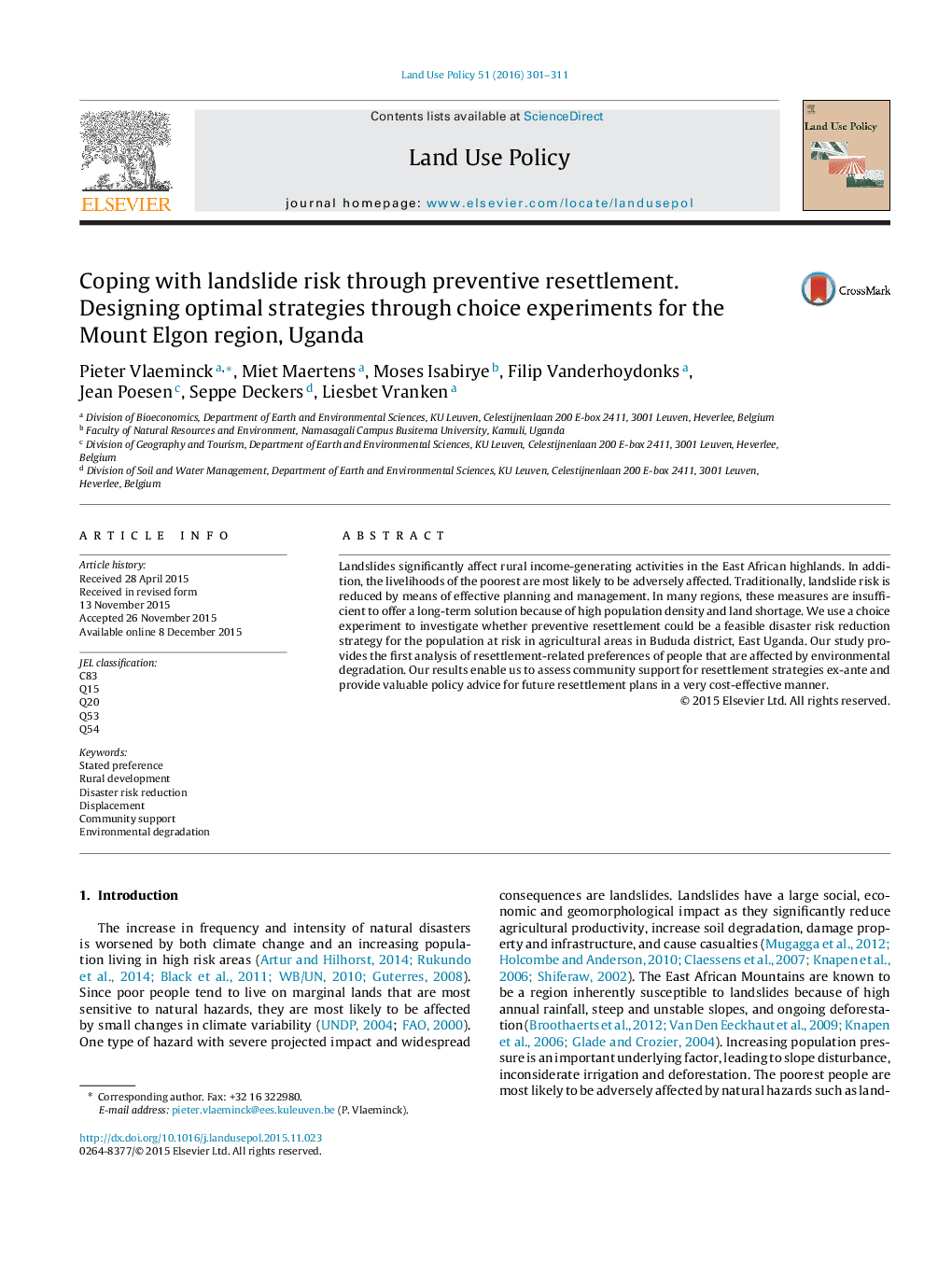| کد مقاله | کد نشریه | سال انتشار | مقاله انگلیسی | نسخه تمام متن |
|---|---|---|---|---|
| 92916 | 160101 | 2016 | 11 صفحه PDF | دانلود رایگان |
• We ex-ante assess resettlement preferences of people affected by landslides.
• Preventive resettlement could be a feasible disaster risk reduction strategy.
• People living in the most landslide-prone areas are most willing to resettle.
• The destination location strongly influences the willingness to resettle.
• Cultural and social dimensions are of equal importance as compensation.
Landslides significantly affect rural income-generating activities in the East African highlands. In addition, the livelihoods of the poorest are most likely to be adversely affected. Traditionally, landslide risk is reduced by means of effective planning and management. In many regions, these measures are insufficient to offer a long-term solution because of high population density and land shortage. We use a choice experiment to investigate whether preventive resettlement could be a feasible disaster risk reduction strategy for the population at risk in agricultural areas in Bududa district, East Uganda. Our study provides the first analysis of resettlement-related preferences of people that are affected by environmental degradation. Our results enable us to assess community support for resettlement strategies ex-ante and provide valuable policy advice for future resettlement plans in a very cost-effective manner.
Journal: Land Use Policy - Volume 51, February 2016, Pages 301–311
